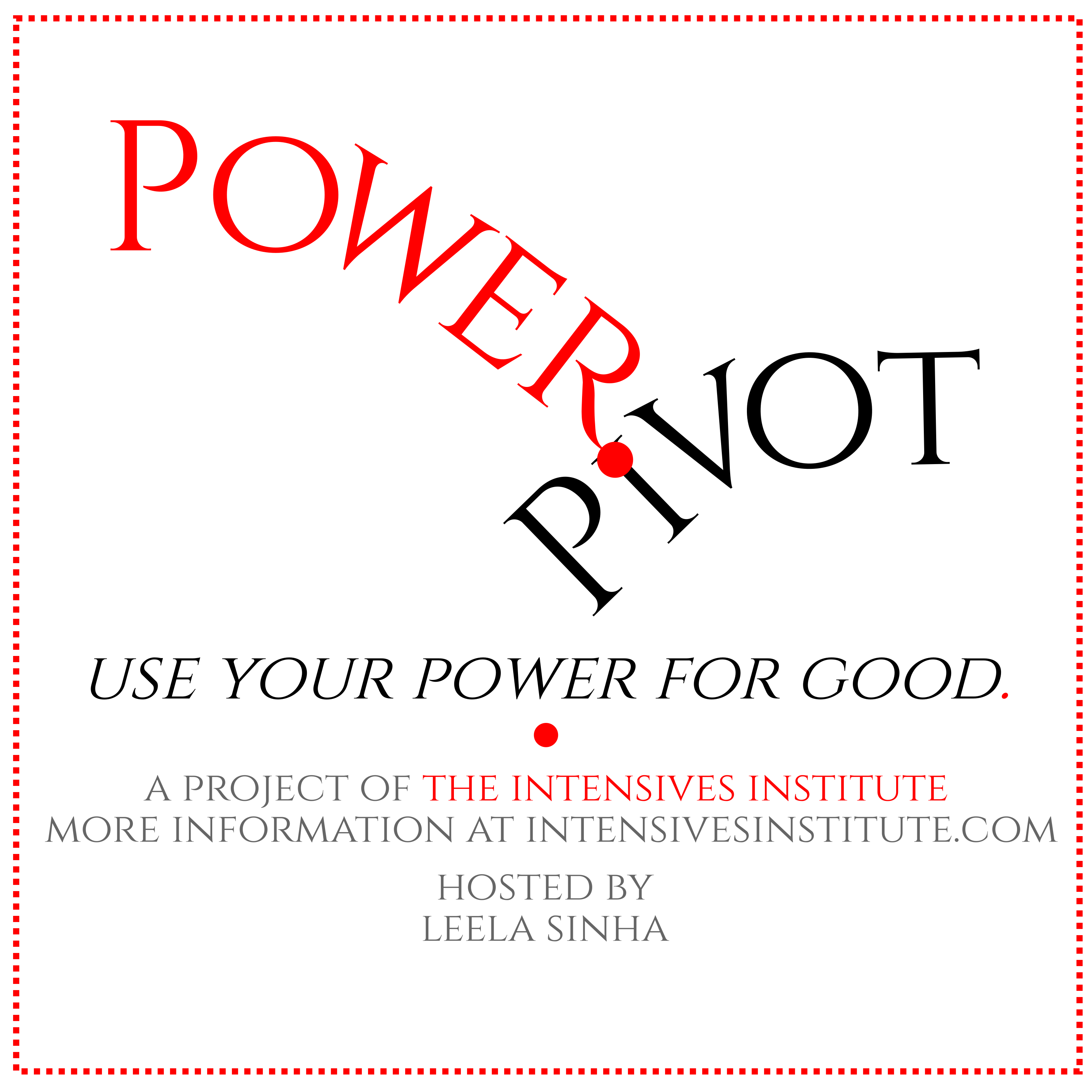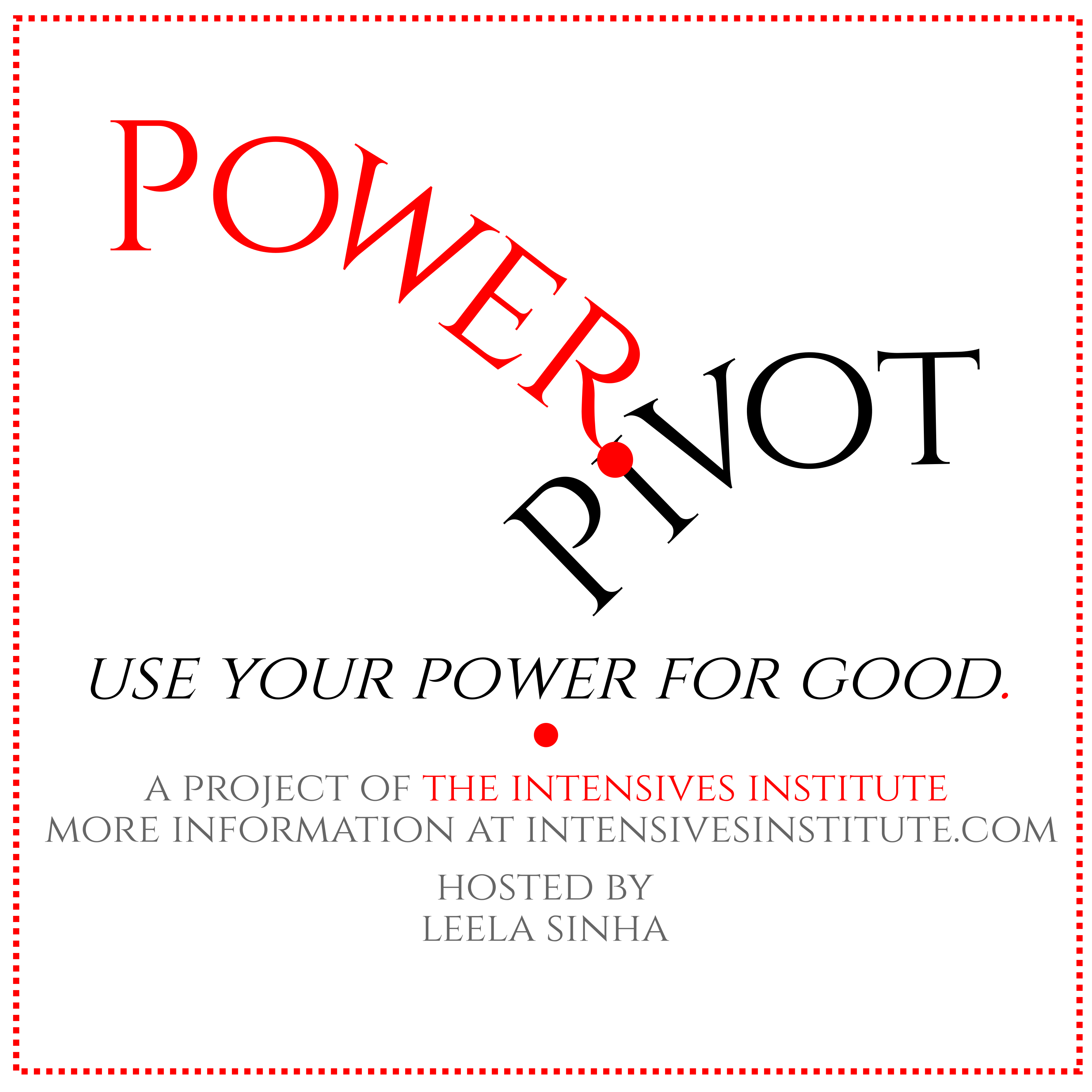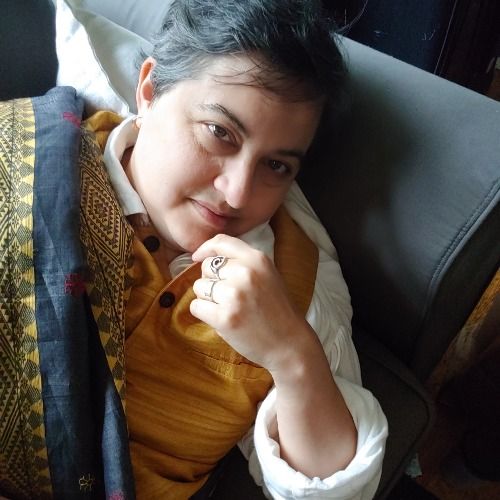Episode 6
Learning for Good
We, as business owners, have a lot of control over people's experience of their lives. And it is our job to make sure that we know as much as possible to understand and move through and interpret those experiences. We have more power. It is on us to do more work.
The @JRC_theslp TikTok video that discusses African American English and the trial of George Zimmerman in the death of Trayvon Martin can be found here.
Transcript
So today, I was on TikTok, as I often am when I'm
Leela Sinha:trying to reset my brain, when I need a space where my brain can
Leela Sinha:be itself and expanded and not have to work too hard and
Leela Sinha:ramping up slowly, and usually I do TikTok in the evenings or the
Leela Sinha:afternoons when I'm starting to slow down. But today, it was a
Leela Sinha:morning TikTok day. And so today, I was on TikTok. And I
Leela Sinha:ran across a piece by someone who is JRC, the SLP, and their
Leela Sinha:handle is @JRC_theSLP. She's a speech language pathologist. And
Leela Sinha:she's talking about African American English and why it's
Leela Sinha:important for everyone to understand African American
Leela Sinha:English. Not to use it, but to understand, it to be able to
Leela Sinha:grasp it and listen to it and hear it and interact with it
Leela Sinha:appropriately. First of all, she clarifies that it's African
Leela Sinha:American English, not African American Vernacular English,
Leela Sinha:because it's not slang. It's a whole dialect. And that is true.
Leela Sinha:And when she said that, I stumbled for a second, then I
Leela Sinha:was like, of course it is, of course it is. How ridiculous
Leela Sinha:that we should be trying to marginalize it and how
Leela Sinha:predictable that we would be trying to marginalize it as a
Leela Sinha:dominant cultural space. Of course, we're trying to
Leela Sinha:marginalize everyone else in the dominant paradigm. And I sort of
Leela Sinha:feel like I should have caught that before because I spend so
Leela Sinha:much time thinking about what the dominant paradigm is, and
Leela Sinha:isn't, but I didn't. And now I know, and now I can do better.
Leela Sinha:African American English. And then she talked about something
Leela Sinha:that I had not heard, in all the years that we've been talking
Leela Sinha:about the Trayvon Martin trial, I had not heard that a key piece
Leela Sinha:of testimony was misunderstood, because the court didn't
Leela Sinha:understand the African American English that the witness was
Leela Sinha:using. The court didn't understand the African American
Leela Sinha:English that the witness was using, didn't understand her
Leela Sinha:cadence, her accent, her language. And as a result, the
Leela Sinha:testimony was recorded very differently. And her witness was
Leela Sinha:basically thrown out. Whooo, I had some feelings about that.
Leela Sinha:And as soon as I was starting to come down from the wave of
Leela Sinha:feelings that I was having about that, which were not good,
Leela Sinha:appropriate, but not good. I started to think about the ways
Leela Sinha:in which we, as power holders, as business owners, as people in
Leela Sinha:positions of, of influence of various kinds, are responsible
Leela Sinha:for educating ourselves; for getting that information and for
Leela Sinha:using it wherever we need to, and for using it appropriately,
Leela Sinha:not to appropriate things that don't belong to us, not to
Leela Sinha:expand our reach into places where we shouldn't be, not to
Leela Sinha:take work from people who should rightly have that work. But so
Leela Sinha:we understand what's happening, so we can understand, so we can
Leela Sinha:communicate. The more privilege we have in various ways, but
Leela Sinha:especially if we have privilege in an environment like business,
Leela Sinha:where we have so much power, especially when we have so much
Leela Sinha:power. It is our responsibility to use that privilege and that
Leela Sinha:power to acquire the knowledge necessary, so that we can
Leela Sinha:understand what we need to understand. So that we can do a
Leela Sinha:better job of leading, of caring for the people who are in our
Leela Sinha:universe, of setting examples, of changing culture, like we
Leela Sinha:have more power to do that, because we control a space; when
Leela Sinha:we control a space, we control the elements of that space. So
Leela Sinha:we control a lot about the experience of the people who are
Leela Sinha:in our business, whether they're clients, that kind of
Leela Sinha:experience, whether they're customers, that kind of
Leela Sinha:experience, whether they're employees, that kind of
Leela Sinha:experience, whether they're co-workers, that kind of
Leela Sinha:experience. We have a lot of control over people's experience
Leela Sinha:of their lives. And it is our job to make sure that we know as
Leela Sinha:much as possible to understand and move through and interpret
Leela Sinha:those experiences. We have more power. It is on us to do more work.
Leela Sinha:That's all I have to say today. That's that's the message and if
Leela Sinha:you're someone like a judge, a life could hang in the balance.


